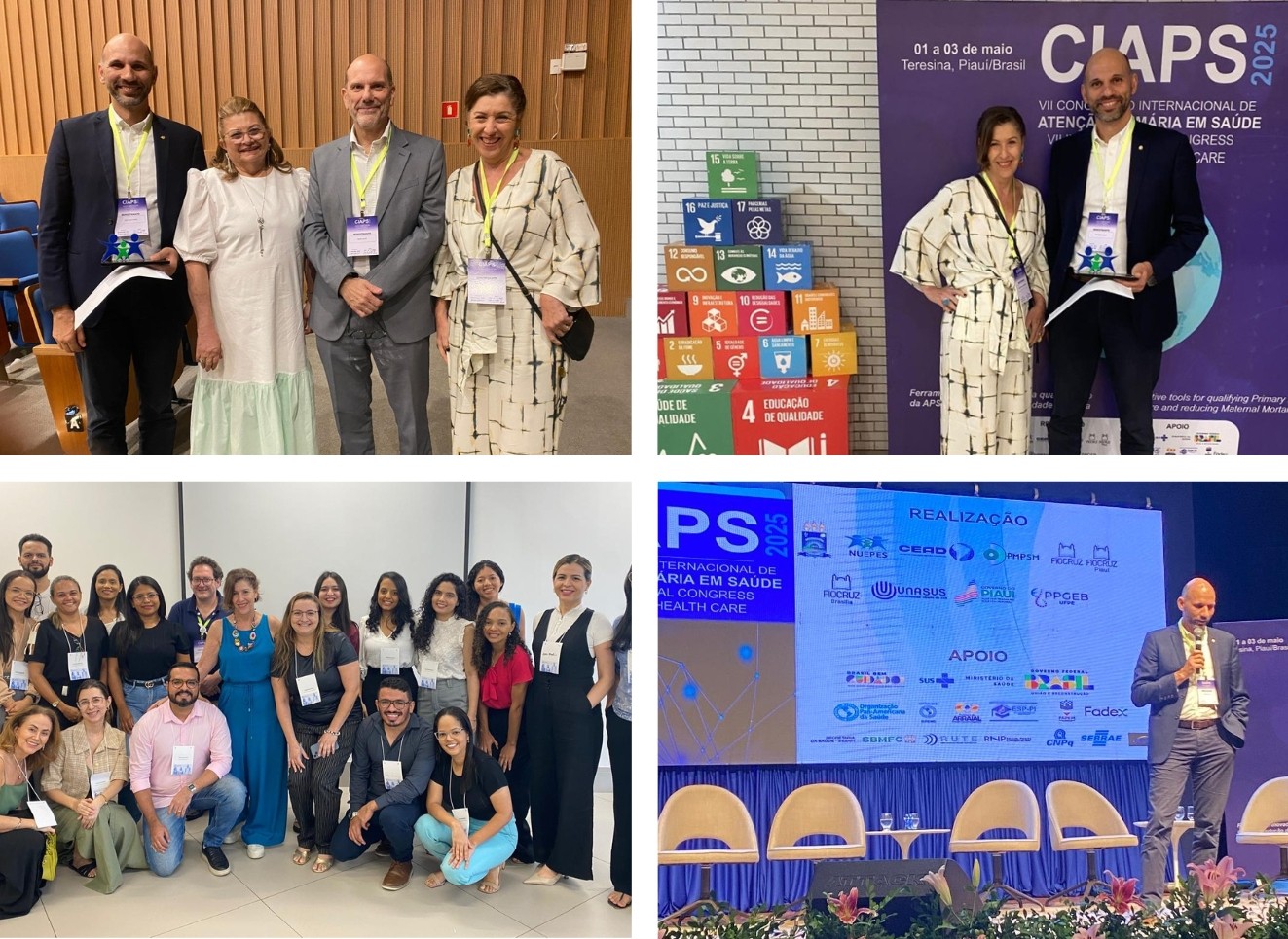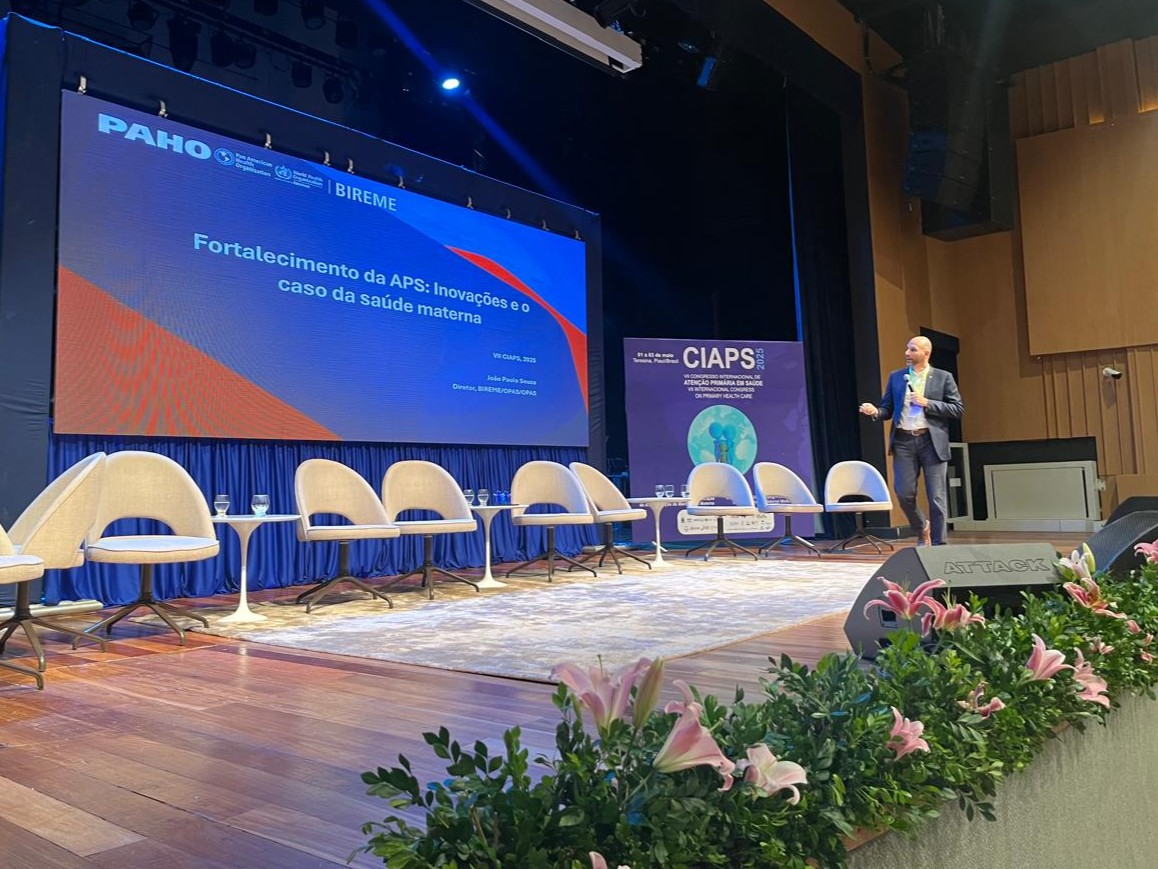The seventh edition of the International Congress on Primary Health Care (VII CIAPS) was held in Teresina, Piauí, Brazil, on May 1-3, 2025, bringing together more than 1,200 participants, including managers, professionals and researchers, around the theme “Innovative tools for qualifying Primary Health Care (PHC) and reducing maternal mortality”. Organized by the Center for Teaching, Research and Extension in Permanent Health Education at the Universidade Federal do Piauí (NUEPES/UFPI), the event has been consolidated as a strategic space for strengthening maternal health protection policies in Primary Care.
The opening keynote address was given by João Paulo Souza, Director of BIREME/PAHO/WHO, with the title “Strengthening PHC: Innovations and the Case of Maternal Health”. The director addressed digital transformation, evidence-based decision-making and the “super determinants of health” as structuring axes for reducing mortality and improving care. With a focus on supporting decision-making in health, his speech highlighted the strategic role of the solutions developed by BIREME to organize and disseminate scientific evidence, expanding access to knowledge in the countries of the Region of the Americas. This role is an essential attribute of the technical cooperation promoted by the Center.

Highlights of the program
BIREME had an outstanding participation in the congress. Verônica Abdala, Manager of Information Products and Services, led a six-hour technical workshop on the methodology for building Evidence Maps. The activity was attended by approximately 30 participants and presented the systematized model for mapping, selecting, evaluating and categorizing scientific evidence applied to public health, with a focus on information needs in the context of PHC.
During the closing session, Verônica Abdala presented the Teresina Declaration for the Reduction of Maternal Mortality, proposed by the event’s coordinators in honor of Professor Lis Marinho, general coordinator of the VII CIAPS. The document proposes the creation of RedeLIS, a collaborative initiative dedicated to tackling maternal mortality in Piauí and other regions. For Verônica, CIAPS represents a strategic space for interaction, exchange of experiences and continuous learning, essential for connecting different public health contexts. “The evidence is global, but health is local, it’s in the people,” she highlighted.
Another highlight was the presentation by Bremen Mucio, former PAHO Regional Advisor on Sexual and Reproductive Health, on the Perinatal Information System, developed by the Latin American Center for Perinatology, Women’s and Reproductive Health (CLAP/SMR/PAHO/WHO). The tool was presented as a successful experience for clinical monitoring and training PHC workers to care for pregnant women and newborns.

Technical cooperation on the agenda
During the mission to Teresina, the BIREME team also took part in a series of bilateral meetings with national and regional institutions, strengthening strategic articulations aimed at technical cooperation in digital health, traditional medicine and integrative practices, home care and indigenous health. The talks signaled opportunities to expand the Virtual Health Library (VHL) and integrate new thematic platforms and collaborative networks into BIREME’s information ecosystem.
According to director João Paulo Souza, BIREME’s presence at CIAPS reaffirms its commitment to democratizing scientific information, strengthening local capacities and supporting evidence-based decision-making, essential pillars for health equity. “I congratulate the CIAPS organization for promoting an inspiring and transformative space. May the dialogues that began in Teresina continue to reverberate in concrete and lasting actions,” he pointed out.